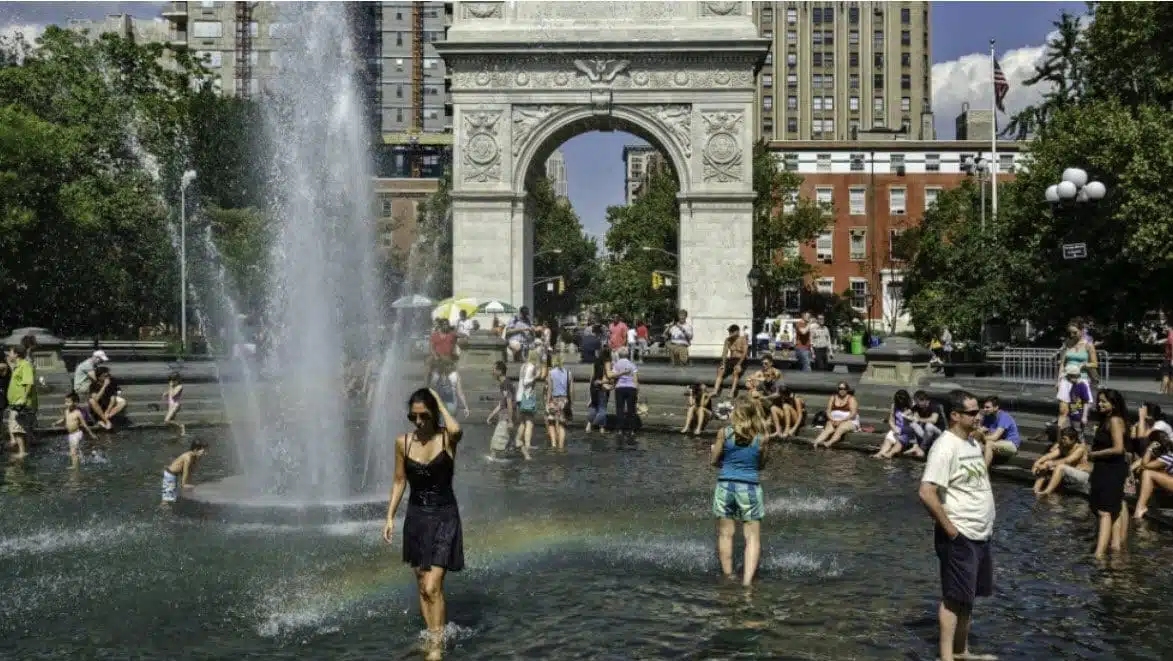Get Prepared for NYC’s Next Heatwave
Posted in Extreme Heat and Age, Summer health hazards for seniors
Extreme heat waves pose a significant hazard for older or homebound adults, and in 2020, that hazard is further complicated by the ongoing COVID-19 pandemic.
Fortunately, SelectCare Home Care Services has extensive experience preparing our clients for the challenges presented by the summer months, and encourages everyone to brush up on their summer heatwave safety with the following guidelines.

New Challenges, New Solutions
New York City has a strong track record of providing those most vulnerable to extreme heat with a variety of resources, however, the ongoing threat of COVID-19 makes the city’s most popular solution, opening air-conditioned buildings to the public as “cooling centers” significantly less appealing, due to the risk of close-quarters within these centers.
This year the city is offering two alternate in-home solutions. NYC’s Cooling Assistance Program is an annual fund that provides qualifying applicants with up to $800 to purchase and install an AC unit or fan in the home, while the brand-new GetCool Air Conditioner Program directly provides seniors with a free air conditioner unit and complimentary installation.
Traditionally, the Cooling Assistance Program floods with applicants soon after the first major heat wave, so the key is signing up early.
The new GetCool Air Conditioner Program offers a much more streamlined application process (those in need simply call 311 and request to be connected to the “Get Cool Air Conditioner Program” and the rest is handled by phone, however it is best to make this request as early in the season as possible.
Extreme Heat and Age
Heat waves can be dangerous at any age, but older individuals face significantly higher risks:
- Remaining hydrated becomes harder as we age. Our bodies become less sensitive to thirst and can retain less water overall. During hot weather, it is critical that older adults make a conscious effort to drink more water – typically a glass of water every hour during extremely hot and humid conditions.
Remember, beer and soda might be refreshing, but can actually contribute to further dehydration!
- Prescription medication can lower a body’s resistance to extreme heat. This is especially true for people taking cardiovascular, diuretic, hypertension, and Parkinson’s disease drugs. If you are on any prescription medication, it is important to speak to your doctor and learn how they might impact your ability to manage heat.
- Social isolation becomes a much larger hazard in the hot summer months as older adults stay inside to avoid intense heat. This isolation means it can be hard to see if an older neighbor needs help and makes keeping apartments at safe temperatures critical. Consider calling the older adults in your life or paying a face-to-face visit more frequently during the summer to ensure they are safe.
- Air Conditioners are the best way to maintain a safe temperature during a heat wave (set your units to between 78 and 80 degrees), but an in-window AC can weigh as much as 50 pounds. Be sure to get help installing window AC units well before a heatwave.
- If you do not have sufficient air conditioning or ventilation, visit NY Emergency Management’s Cooling Center page to learn about public, air-conditioned facilities where you can wait out the worst of the heat safely.
Beating the Heat in New York City
Extreme heat impacts everyone and the following safety tips are useful for New Yorkers of all ages.
- Temperatures reach their peak between 11 am and 4 pm during the summer months. If possible, try to avoid outdoor activities and errands during this time.
- Air conditioning is the best way to stay cool during a heatwave, but be conscious of how much electricity you are using. Try to set your air conditioned to 78 degrees to avoid causing power outages.
- Dress for the weather by wearing loose, light clothing that breathes, as well as a hat that protects your face and neck from the sun.
Heat Exhaustion
When a person begins to overheat, they will often display symptoms of heat exhaustion. These symptoms include: dizziness or fainting, nausea, sweating, rapid weak pulse, fatigue, headache, cramps and cool, moist, pale skin.
If someone is experiencing these symptoms, especially an older adult or young child, they should be moved to an air-conditioned space immediately and hydrated with cold water while you call for medical assistance. Spraying cool water on the person, or offering them cool, wet sponges to place on the back of their neck, head and armpits can also help lower the person’s temperature while you wait for help to arrive.
Preparing for Tomorrow’s Challenges
There’s nothing quite like summer in the city, and the team at SelectCare hopes that this early reminder helps our community enjoy the season safely. With more than 35 years of experience helping New Yorkers live happily and healthily in their long-time homes, our staff is here to help your family no matter what challenges you face.
To learn more about how we help, call SelectCare or request a free in-home care guide.
